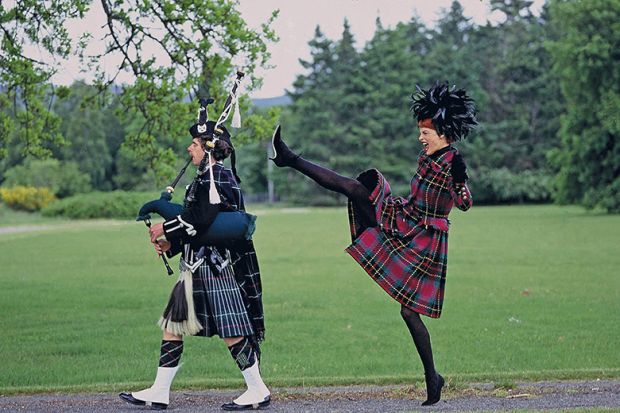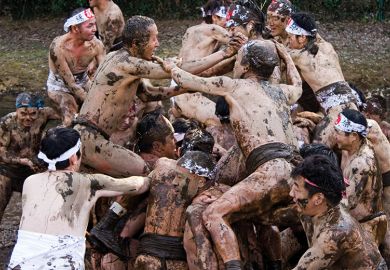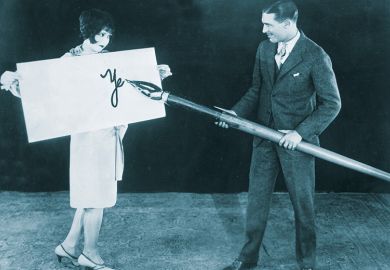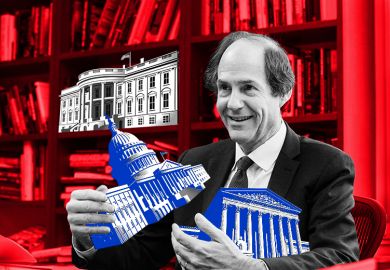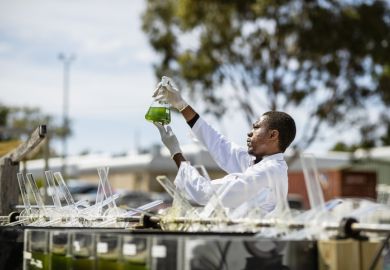Female academics are much more likely to feel obliged to award authorship credit to other researchers even if they did not make a significant contribution to the paper, a new study reveals.
Using more than 12,000 responses to surveys sent to more than 110,000 academics from a range of disciplines, Eric Fong, an associate professor of management, and Allen Wilhite, an economics professor, both at the University of Alabama in Huntsville, set out to examine the prevalence and systematic nature of honorary authorship, coercive citation and “padded” citations in academic publishing.
Taking into consideration results from 18 different disciplines, the researchers found that more than a third (35.5 per cent) of respondents had admitted to adding an author to a manuscript even when that contribution had been minimal, according to the paper in Plos One.
Asked why, the most common reason cited by respondents was that the added individual was the director of their laboratory. The second most common reason given was that the added individual was in a position of authority and could affect the scholar’s career – something that Dr Fong and Professor Wilhite said was “most disturbing”.
Female academics were, on average, 38 per cent more likely than their male peers to have felt obliged to add an author to a manuscript, an issue that the report’s authors attributed to “the dearth of other females” in senior or leadership positions, leaving them with “fewer mentors to help navigate these political minefields”.
More junior academics were more likely to feel obliged to add an author, with assistant professors 90 per cent more likely to do so than full professors, and associate professors 40 per cent more likely.
The study also shows that the likelihood of academics feeling obliged to give additional credit varies a great deal between disciplines, with those publishing papers in marketing as much as 75 per cent more likely to do so than average. At the other end of the scale, political scientists were 44 per cent less likely to feel such pressure.
Dr Fong and Professor Wilhite found that 14.1 per cent of respondents reported having been coerced by a journal editor to add citations to their paper, most likely to improve the periodical’s journal impact factor.
In this case, men were more likely to report having been coerced in this way (18 per cent more likely), and junior academics were more likely to be affected.
It is not just a matter of peer pressure, however: 20.8 per cent of respondents said that they had added an investigator to a grant proposal even though their contribution was minimal and, of these, 60.8 per cent said that they did this to improve the chances of their project getting funding.
The authors conclude that “there is a significant level of deception in authorship and citation research” and that, “while it would be naïve to suppose that academics are above such scheming to enhance their position, the results suggest otherwise”. The competition for research funding and journal space appears to make academics feel “compelled to participate in activities they find distasteful,” the paper adds.
Speaking to Times Higher Education, Professor Wilhite suggested that the best way to eradicate misconduct is to give less incentive for it, for instance eliminating self-citations within the assessment of journal impact factor.
“As the manipulation of citation metrics is increasingly well known, academics will express doubt in the validity of these measures,” he said. “In my opinion, citation metrics do carry useful information and shouldn’t just be rejected, but if they can be manipulated it renders them useless.
“Internal discussion of these issues on a university-by-university basis is needed, and there isn’t a magic switch that will turn on or off such activities, but because it’s tough to do doesn’t mean it shouldn’t be done.”
Register to continue
Why register?
- Registration is free and only takes a moment
- Once registered, you can read 3 articles a month
- Sign up for our newsletter
Subscribe
Or subscribe for unlimited access to:
- Unlimited access to news, views, insights & reviews
- Digital editions
- Digital access to THE’s university and college rankings analysis
Already registered or a current subscriber?
